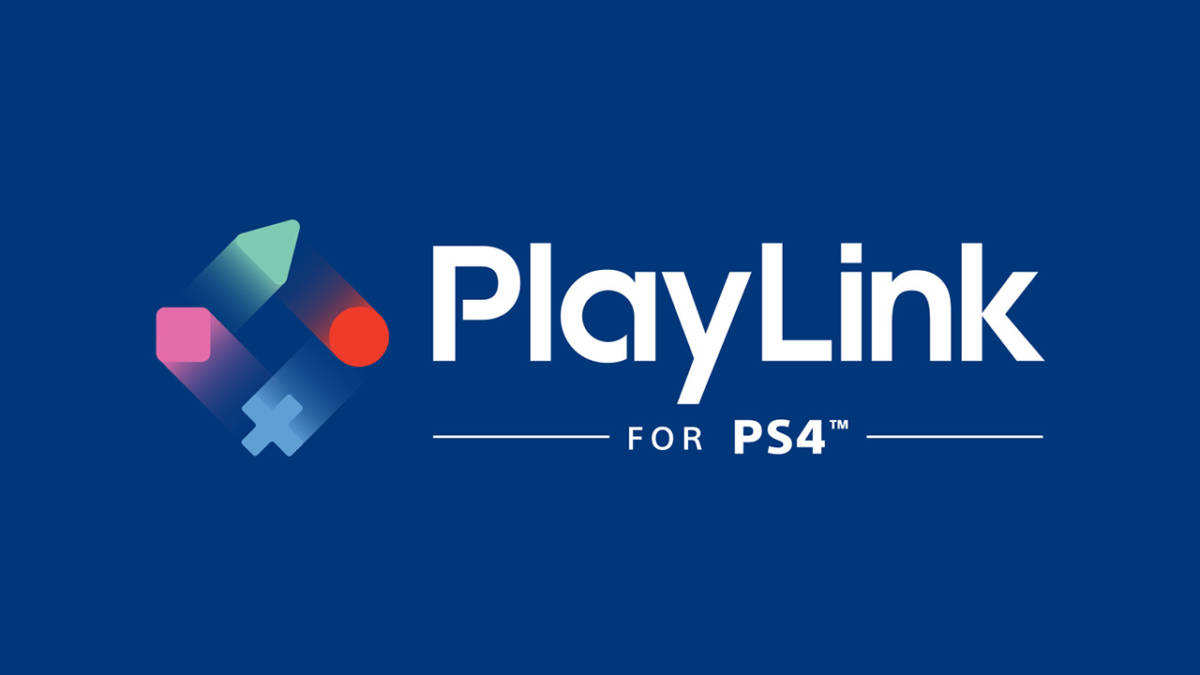Co-operative and competitive gaming has been through many different eras, culminating in the juggernaut that is online multiplayer. PlayStation and Xbox have essentially modelled their latest generation of consoles around the concept of competing against other players online and having everything about your gaming life seamlessly connected to the network. Where this is both an innovative and necessary evolution for modern gaming, it seems to have forgotten the traditional concept of multiplayer – actually having to face your friends and play some god dang video games together.
Then along came Playlink, the latest innovation from Playstation. I’m not going to lie, at first I thought this new gimmick was incredibly lackluster, essentially having the player connect their mobile phone to the TV and use it as a controller. I mean, what was wrong with the standard four button pad, right? Nothing really screamed that this was the way forward to me, it just seemed like an excuse for Sony to hammer in a few extra app downloads.
Nevertheless, I found myself buying into a couple of games that used this feature, pleasantly surprised with the results.
My first experience of Playlink was with the vibrant trivia game, Knowledge Is Power. I’m a big sucker for quizzes. In fact, one of my weekly highlights is making the trip out for our local’s pub quiz night, so getting the chance to hone my trivial knowledge during my downtime is always a fun escapade. I wasn’t really expecting a great deal from the game itself, but what I did get from it was a whole lot of fun that I’ve yet to experience from a quiz game. Unlike the standard Trivial Pursuit clone on PlayStation, this was more of a throwback to Buzz games of olde, where you’d be taking part in a more interactive experience rather than just pressing buttons on a controller. Knowledge is Power keeps the game fresh, while offering more challenges on top of simply answering questions.
Having you furiously tap away on your phone screen to remove obstacles in order to get to the right answer on time, swiping different answers into their specific categories and battling your opponents over whether your desired category will be the one featured or not kept us all invested. My partner and I would only usually spend one round’s worth of time on one of these games, but we found ourselves playing for way longer than anticipated.
Even though the integration of my phone with the Playstation was minimal, I felt like I was getting more out of Playlink than I expected. It was getting us playing games in a way which we hadn’t for quite some time, even in the smallest way. So we thought we’d try something else to see if Playlink could go two for two, and it bloody well did.
Hidden goddamn Agenda.
I’m coming off a bit of a hype for this game right now, having just finished our second playthrough (and actually surviving to the end this time). Supermassive Games have been breaking out as one of the top developers of the new generation, releasing the award winning Until Dawn back in 2015, taking what made Dawn an intriguing concept and implementing that into a detective drama – they’ve taken the PlayLink market by storm.
So you’d think this wouldn’t really be the ideal game to be playing on a mobile phone, especially when some of the gameplay involves searching for clues under strict time limits and QTEs which, if failed, could result in the untimely death of the protagonist. I, for one, wouldn’t trust myself with something like Heavy Rain on a mobile device. But somehow they’ve put enough thought into it to make the transition from controller to phone work pretty well. Your phone operates as the case file, storing important details relating to the narrative and the variety of characters you meet throughout the game, allowing easy access to clues and other things you may need to reference. It’s also the means of making decisions and avoiding QTEs. Simply by dragging the subtle cursor from one side of the screen to the other makes the choice based gameplay really simple and thoughtless. It’s minimalist, which works really well for something which requires you to be spending more time focusing on the story than it does the ‘gameplay’.
We’ve spent a fair few hours playing through the co-operative mode, discussing different theories that would impact our choices throughout the game. It’s cooperation that’s rarely found in multiplayer games these days. To accompany that is a competitive mode, which I have yet to try out myself. The aim of this mode is to outsmart the other players around you, with one player being given the role of ‘a hidden agenda’ shaping the story in a certain way while trying to avoid raising suspicion amongst your friends. For those that have played board games like Avalon and Resistance, you’ll know the sort of sly tactics the game is trying to inspire. Again, a very rare feature of multiplayer video games.
PlayLink’s library of games is still only five full, but so far I’m ridiculously impressed. I’m still yet to touch Planet of the Apes: Last Frontier, but I’m going to be heading into that game a lot more optimistic than I would have been a week ago. This, for me, is going to be a big part of my gaming life now, bringing back that culture of getting your buds together in the same room for a night of virtual antics. Playlink is pushing back the need for online connections and subscriptions and taking gaming back to its origins. Will it take over as the primary source of multiplayer? Probably not, but I sure hope people start turning to it as an alternative means of multiplayer entertainment.
Some of the coverage you find on Cultured Vultures contains affiliate links, which provide us with small commissions based on purchases made from visiting our site.

